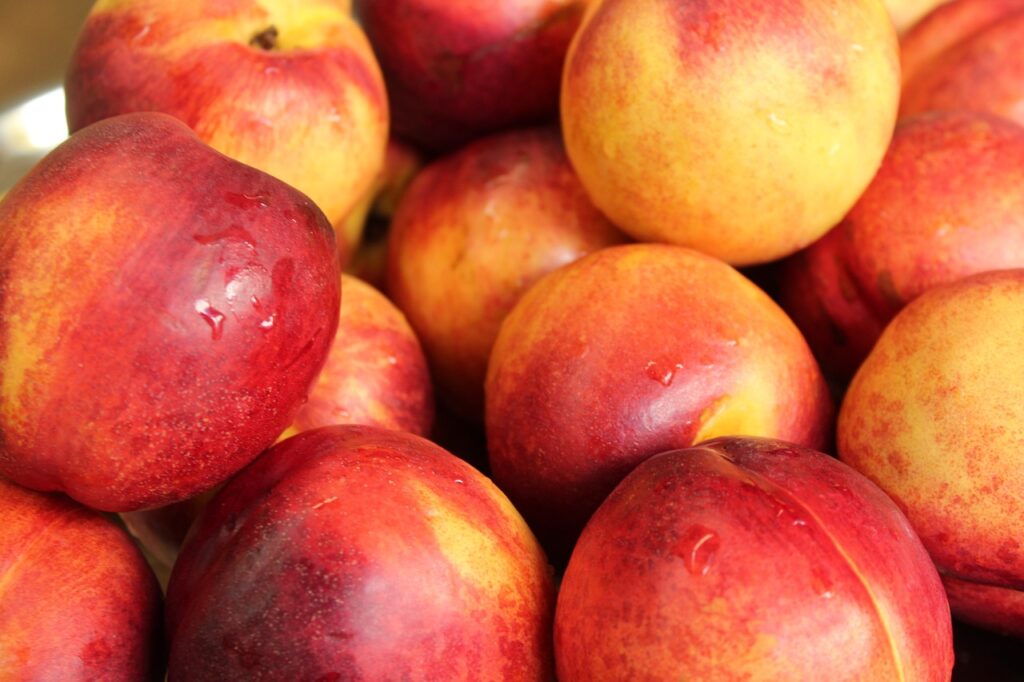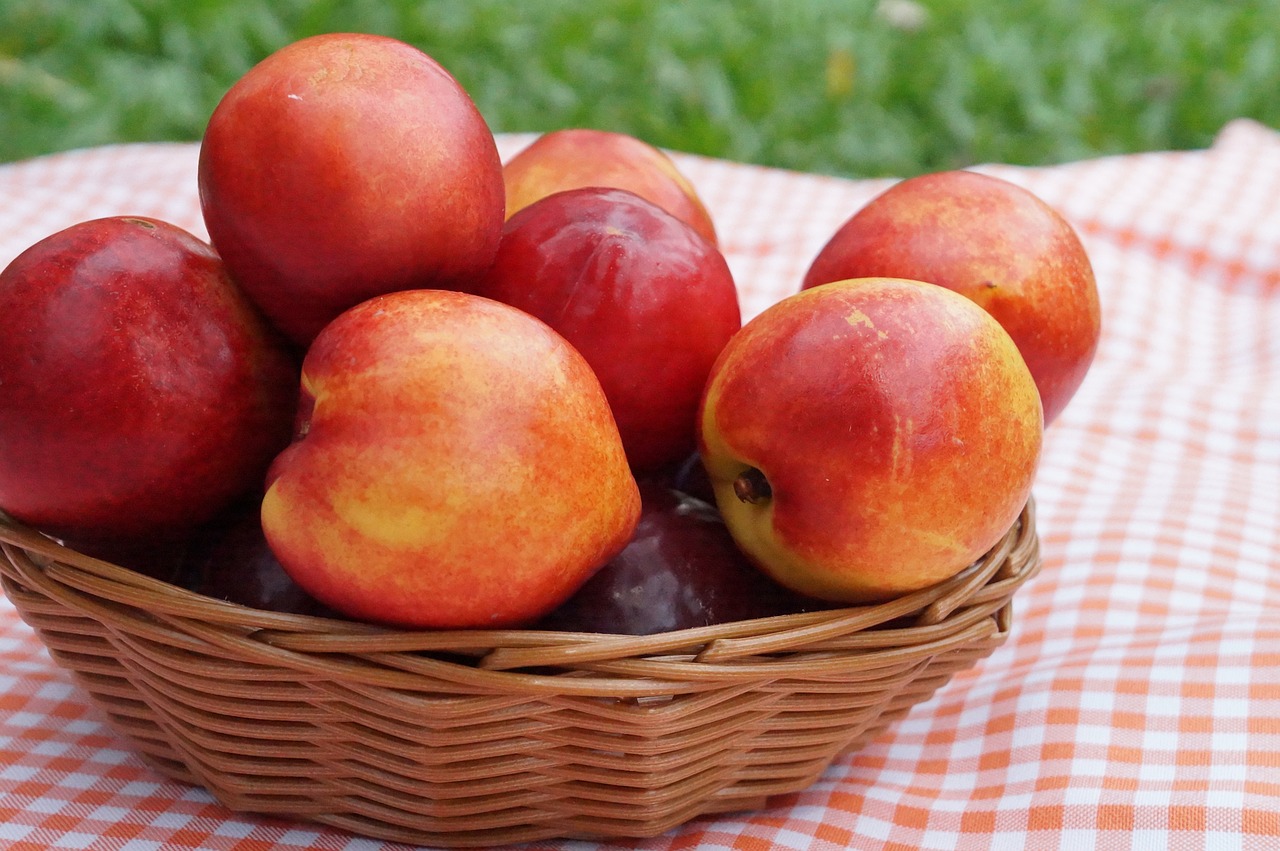When summer rolls around, few fruits capture the essence of the season quite like the nectarine. With its smooth skin, vibrant color, and irresistibly sweet flavor, the nectarine is a favorite for snacking, baking, and adding a touch of sunshine to your meals. But beyond its delicious taste, this fruit is a nutritional powerhouse packed with vitamins, minerals, and health benefits.
In this blog post, we’ll explore the benefits of nectarines, their calorie content, and why you should make them a regular part of your diet.
What is a Nectarine?
Nectarines (Prunus persica var. nucipersica) are a close relative of peaches, but unlike peaches, they have smooth, fuzz-free skin. They come in two varieties: clingstone (where the flesh clings to the pit) and freestone (where the pit separates easily from the flesh). Nectarines are known for their juicy, sweet flavor and are available in yellow and white flesh varieties.
Nutritional Values of Nectarines
Nectarines are low in calories but high in essential nutrients, making them a guilt-free snack or addition to your meals. Here’s a breakdown of their nutritional profile per 100 grams (about one medium-sized nectarine):
- Calories: 44 kcal
- Carbohydrates: 10.5 g
- Dietary Fiber: 1.7 g
- Sugars: 7.9 g
- Protein: 1.1 g
- Fat: 0.3 g
- Vitamin C: 5.4 mg (9% of the Daily Value)
- Vitamin A: 17 mcg (2% of the Daily Value)
- Potassium: 201 mg (6% of the Daily Value)
- Niacin (Vitamin B3): 1.1 mg (6% of the Daily Value)
Nectarines are also a good source of antioxidants, including beta-carotene, lutein, and zeaxanthin, which contribute to their vibrant color and health benefits.
Health Benefits of Nectarines
- Supports Digestive Health
Nectarines are rich in dietary fiber, which promotes healthy digestion by preventing constipation and supporting a balanced gut microbiome. The fiber content also helps you feel full longer, making it a great snack for weight management. - Boosts Immunity
With a good dose of vitamin C, nectarines help strengthen your immune system, protecting your body against infections and illnesses. Vitamin C also aids in collagen production, keeping your skin healthy and glowing. - Promotes Heart Health
The potassium in nectarines helps regulate blood pressure by counteracting the effects of sodium. Additionally, the antioxidants in nectarines reduce inflammation and oxidative stress, which are risk factors for heart disease. - Supports Eye Health
Nectarines contain lutein and zeaxanthin, two antioxidants that are essential for eye health. They help protect against age-related macular degeneration and cataracts by filtering harmful blue light and reducing oxidative damage. - Hydrates the Body
With a high water content (about 87%), nectarines are incredibly hydrating, making them a perfect snack for hot summer days or after a workout. - Aids in Skin Health
The combination of vitamin C, vitamin A, and antioxidants in nectarines helps maintain healthy skin by promoting collagen production, reducing signs of aging, and protecting against UV damage. - Low-Calorie and Weight-Friendly
At just 44 calories per 100 grams, nectarines are a low-calorie fruit that can satisfy your sweet tooth without derailing your diet. Their natural sugars provide a quick energy boost, while their fiber content keeps you full.
How to Enjoy Nectarines
Nectarines are incredibly versatile and can be enjoyed in a variety of ways:
- Fresh: Eat them as a quick, refreshing snack.
- Grilled: Slice them in half, remove the pit, and grill for a caramelized treat.
- In Salads: Add sliced nectarines to green salads or grain bowls for a sweet and tangy twist.
- In Smoothies: Blend nectarines with yogurt, spinach, and a splash of almond milk for a nutritious smoothie.
- In Desserts: Use them in pies, cobblers, or tarts for a summery dessert.
Fun Fact: Nectarines vs. Peaches
While nectarines and peaches are often confused, they are distinct fruits. Nectarines have smooth skin and a slightly sweeter, more intense flavor compared to peaches. Both are equally nutritious, so you can’t go wrong with either!

Nectarines are more than just a delicious summer fruit—they’re a nutrient-packed addition to your diet that offers a wide range of health benefits. From supporting digestion and heart health to boosting immunity and keeping your skin radiant, this juicy fruit is a must-have during the warmer months. Plus, with their low calorie count and natural sweetness, they’re a guilt-free way to satisfy your cravings.
So, the next time you’re at the farmers’ market or grocery store, grab a few nectarines and enjoy their sweet, juicy goodness. Your body (and taste buds) will thank you!
What’s your favorite way to enjoy nectarines?
Share your thoughts and recipes in the comments below! 🍑

